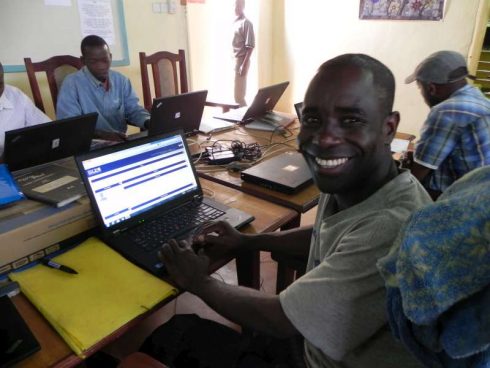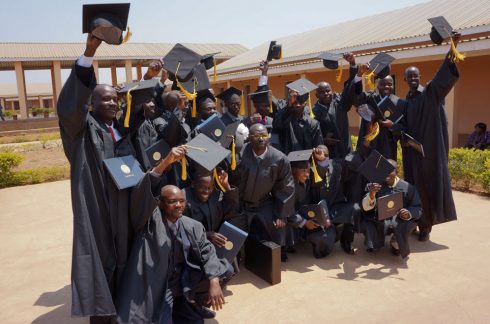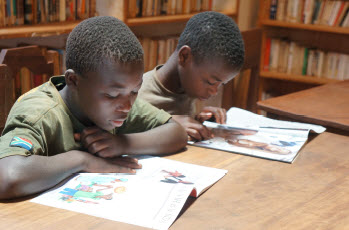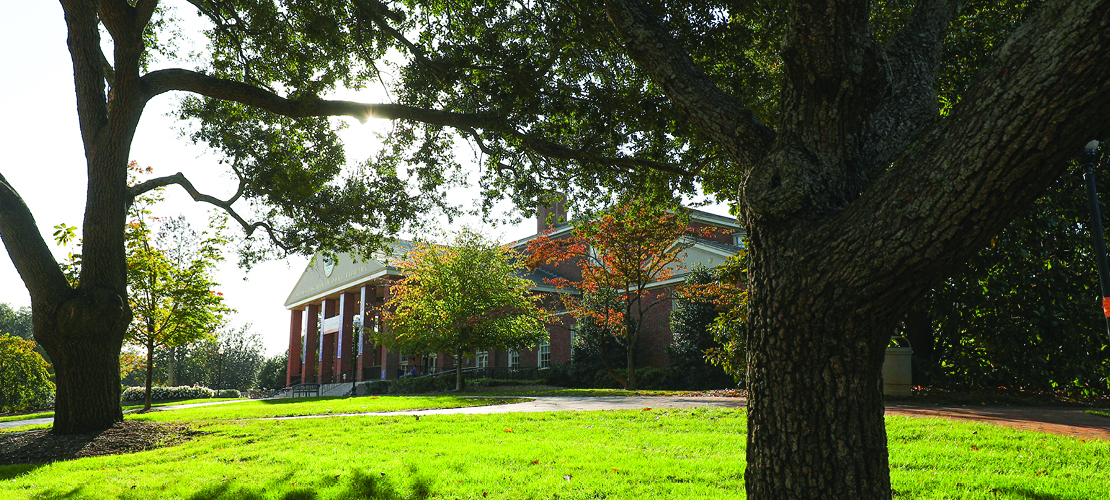Refugee Library in Malawi
About the camp:
Dzaleka Refugee Camp was established by the Malawian government in 1994 and is now home to more than 28,000 refugees. The refugees and asylum-seekers originate from nine different countries, with great majorities of the people coming from the Democratic Republic of Congo, Rwanda, and Burundi. Dzaleka, located just 45 minutes north of the capital Lilongwe, is a “permanent” refugee camp, meaning that community members living in Dzaleka are not expecting to return to their home countries, and are waiting for resettlement to the United States and Canada. Some refugees wait between 10-15 years to be resettled.
Since 2010, the Jesuit Refugee Services (JRS) have been partnering with the United Nations High Commissioner for Refugees (UNHCR) in Dzaleka. JRS offers pre-school, primary education, secondary education, and adult and vocational programs such as Higher Education at the Margins (HEM). HEM’s highest academic offering is the Diploma in Liberal Studies, an intensive three-year 45-credit degree awarded by Regis University in Colorado. HEM also offers a number of locally developed Community Service Learning Tracks. These eight-month long courses are developed on topics pertinent to community development with the goal of transforming community members into educated practitioners.


About the Dzaleka Community Library:
The Dzaleka Community Library serves as the sole public library to Dzaleka’s population of over 28,000 refugees and asylum seekers. Open nine hours a day and stocked with 6,000 donated books, the library provides a place of consistent peace and quiet where community members can read and research away from the constant bustle of the camp. Many new arrivals to the camp spend time in the library learning English, a critical step before applying to HEM’s university courses or integrating into English-speaking Malawian schools and host communities. Due to a lack of sufficient space in the camp’s schools, many community members also use the library as a self-learning center, using textbooks to self-teach before sitting for exams. In addition to the main reading room, the Dzaleka Community Library also hosts a Kids Corner, where Dzaleka’s youth come to read children’s books, attend reading hours, and play board games. A literacy campaign was recently launched from the library to help introduce a culture of reading in the camp and to increase English literacy.

About Furman University Libraries’ involvement:
In January 2017, we learned from Kate Kaup, Professor of Asian Studies and Political Science, that her niece Nadia Asmal is the Project Director for Higher Education at the Dzaleka Refugee Camp. In February, members of the Library Administration had a Skype call with Nadia to ascertain if there are ways the Furman University Libraries can assist and support the refugee camp library. Nadia mentioned that the library was in need of books–books to supplement what the students are using in school–textbooks that an American high school would have, books to learn English and science, and children’s books. The Technical Services Division of the Furman Libraries had just withdrawn materials from the Curriculum Collection, so the thought was, if these books would be helpful to the refugee library, then perhaps we could send them there. A spreadsheet was sent to Nadia listing the withdrawn items and she highlighted the books the library could use. She said she felt like “a kid in a candy store” as she went through the list and selected items that would be helpful.
The challenges over the past three and a half months have included figuring out how to get the books to Malawi (what companies could ship from here to there), finding out the exact address where they could be shipped, getting shipping quotes, understanding the duties and taxes and finding out if the shipment is exempt, and ultimately finding a donor who would pay the shipping cost. Lots of phone calls and waiting for calls back with the information. DHL was identified as the most cost effective courier. For approximately $4900, they will provide door to door service with delivery in 6-10 days.
Upon hearing the good news, Nadia wrote:
“Amazing!!! Thank you so much for making this happen. Please pass along my gratitude to the donors and please let me know if I can reach out to them with a personal thanks. We just had an intake of new students and were only able to take 45 of the 500+ applicants. More books in the library means that more students can self-study and meet the needs that our Jesuit Refugee Service classes can’t. These books will be a huge asset to the Dzaleka community.”
About Jesuit Refugee Services Alumni:
Refugees Earn Diplomas from Jesuit Regis University
Malawi: Education Initiative Impacts Young Lives
Inspired by His Father, Enabled by His Education
Malawi: Dzaleka Secondary Students Compete in National Math Olympiad
Malawi: Women Refugees as Community Leaders
Albert’s Story: ‘They See Us Only as Refugees’
Guitars from Malawi Camp Hit Right Note with Musicians Around the World


